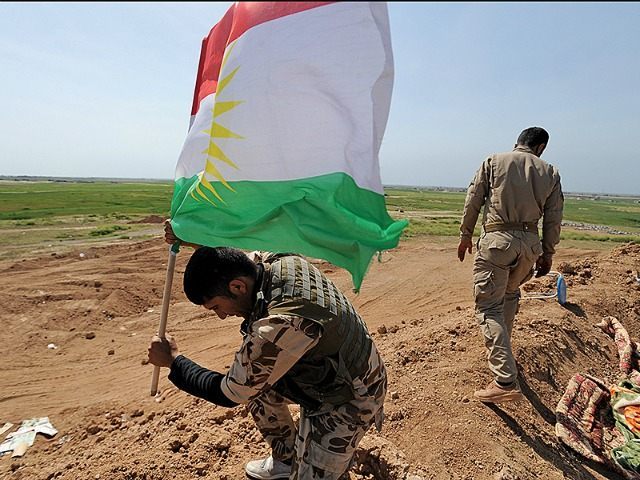Iraqi Kurdish leaders have announced an independence referendum in November, a day after President Masoud Barzani recommended holding one before the U.S. election.
His adviser Kifah Mahmoud explained that it “doesn’t mean independence. It is the decision of the people.”
2016 marks the 100th anniversary of the Sykes-Picot Agreement, which shaped the Middle East after the fall of the Ottoman Empire. It also left the Kurds without a state. They are currently semi-autonomous but rely on Baghdad. Some Kurds believe independence would help the region.
“Our economic situation gets worse and worse day by day, and one day we will all go bankrupt,” said shop owner Didar Younis. “All the blame must be put on Baghdad because they cut off our national budget. … Independence will solve all the trouble we have been facing. The KRG should decide and declare independence. We need separation from Baghdad.”
Kurdish forces have also spent significant efforts fighting on the front lines of the war on the Islamic State, securing important victories.
“I think that within themselves, [world leaders] have come to this conclusion that the era of Sykes-Picot is over,” Barzani said in an interview with The Guardian. “Whether they say it or not, accept it or not, the reality on the ground is that. But as you know, diplomats are conservatives and they give their assessments in the late stage of things. And sometimes they can’t even keep up with developments.”
He continued:
There must be a [new] agreement, it is important to see what type of agreement it is, what mechanism it can bring and rely on to formalise things, and what will be its status. When the formalisation of that agreement will be is not known yet. It’s illogical to continue or insist on repeating a wrong experiment that was repeated for 100 years and is leading nowhere.
Right now, Iraq is divided. We are not responsible for it. On the contrary, we have done our best to preserve Iraqi unity and a democratic Iraq. In 1991, we went to Iraq and negotiated with those criminals that were responsible with the chemical bombardment, the Anfal campaign [launched by Saddam Hussein against the Kurds].
Iraqi Prime Minister Haider al-Abadi’s spokesperson Saad al-Hadithi denounced the decision, saying, “Any unilateral position from any party without coordination or approval will be against the constitution and illegal.”
In early January, Israel Justice Minister Ayelet Shaked welcomed the idea of an independent Kurdistan.
“We must openly call for the establishment of a Kurdish state that separates Iran from Turkey, one which will be friendly towards Israel,” she said. She mentioned that the Kurds are friendly with Israel.
“The Kurds are an ancient, democratic, peace-loving people that have never attacked any country,” she added. “It is time to help them.”

COMMENTS
Please let us know if you're having issues with commenting.